Smart Money Tips For New Parents
Because you’ve got enough to worry about!
It sounds like congratulations are in order!
As everyone and their dog has probably told you, growing your family can change everything about your life—including your finances. To make matters worse, with something as important as welcoming a new baby, it’s easy to feel incredibly overwhelmed by literally everything.
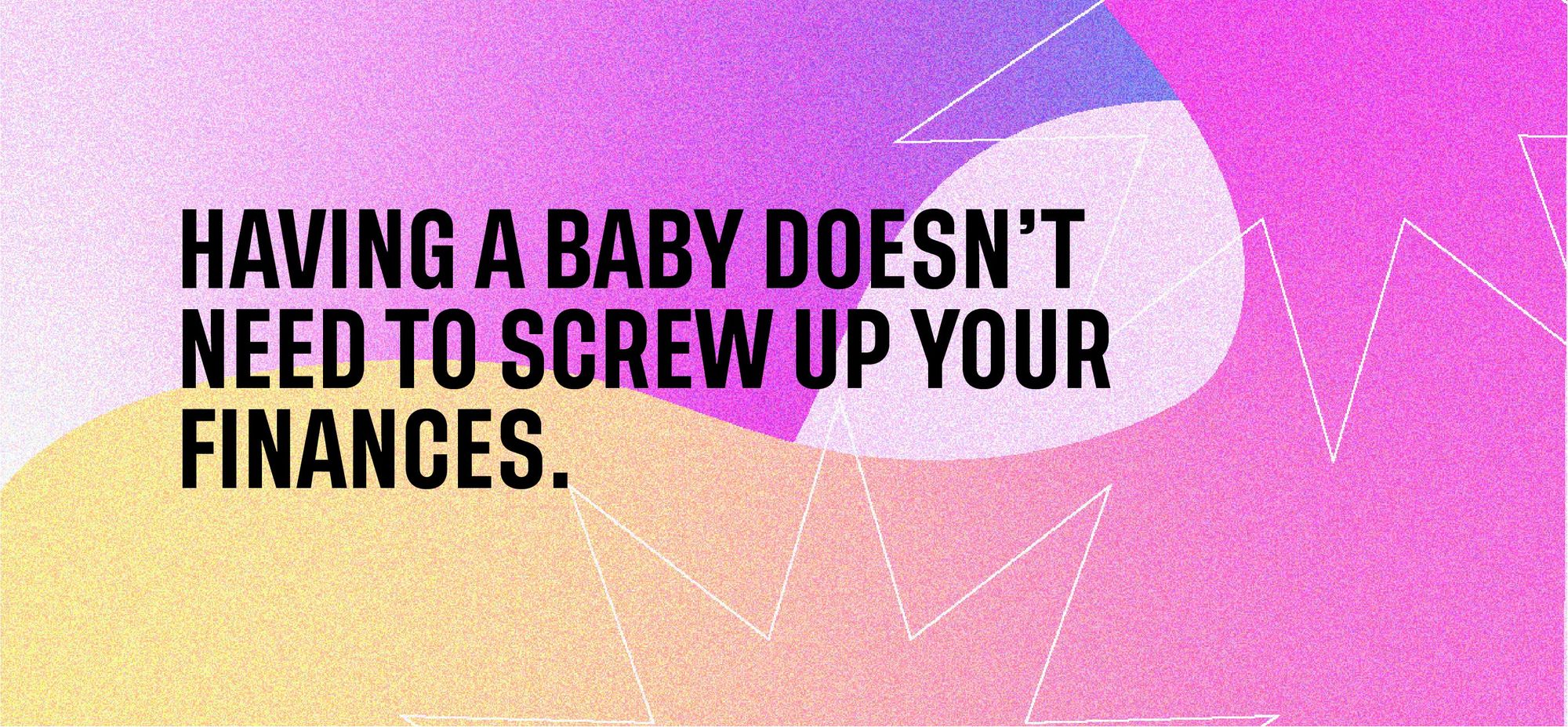
Having a baby doesn’t need to complicate your finances. The tenets that will underscore healthy household financial security are really simple.
Create a Budget (Seriously)
We’re not going to belabour the point (pun! intended!), but if you don’t have a budget in place, now is the time to develop one. Babies bring heaps of potential expenses, and if you don’t have a clear picture of your finances it’s easy to wind up in a spending/debt cycle.
We like the 50/30/20 Budget. It’s flexible, easy to understand, and can help you keep perspective on where your money is going.
Seriously. This is a boring tip, but cliches are cliches for a reason. Make a budget today, and be prepared to alter it as new baby-related expenses arise.
Plan Ahead
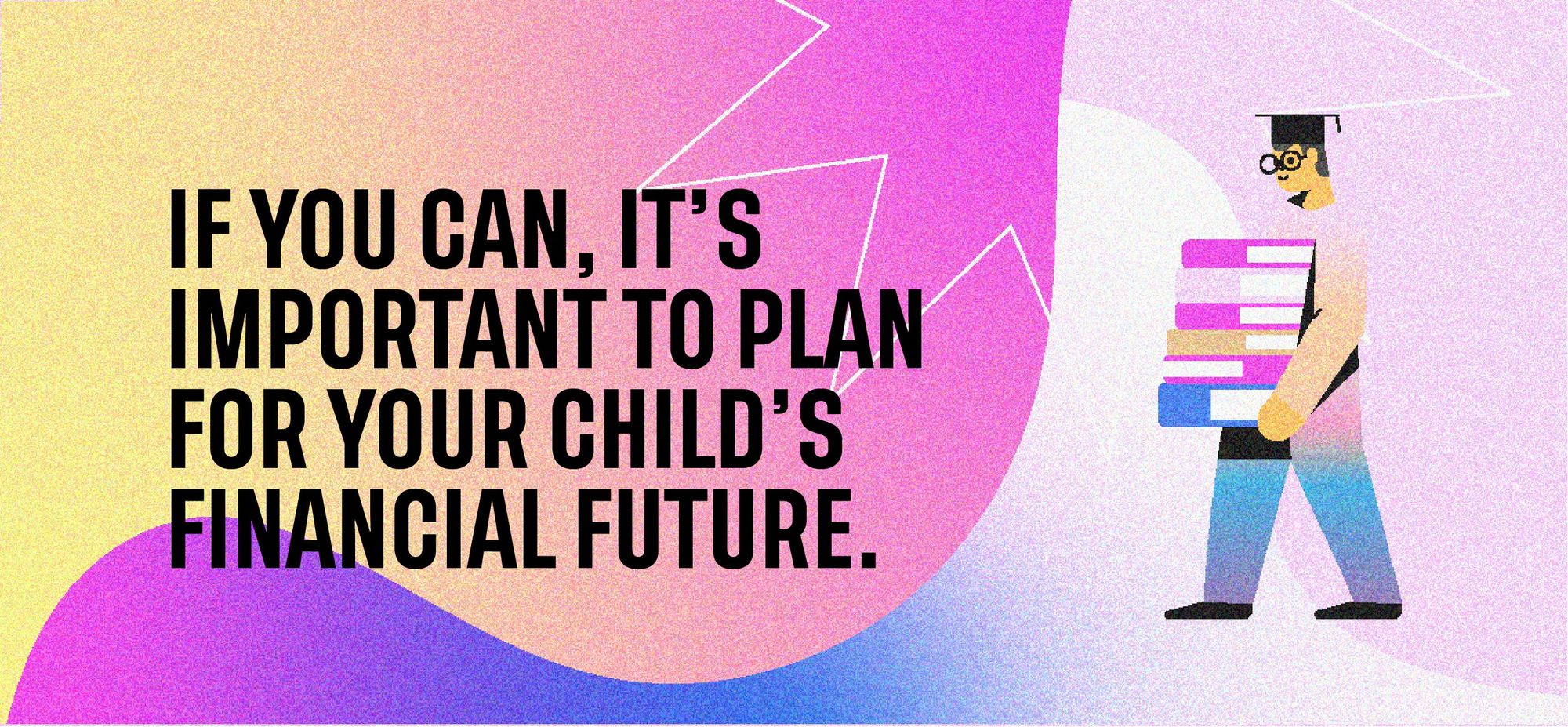
If you can, it’s important to plan for your child’s financial future.
Once you’ve got an idea of your finances as they stand today, it’s time to look ahead.
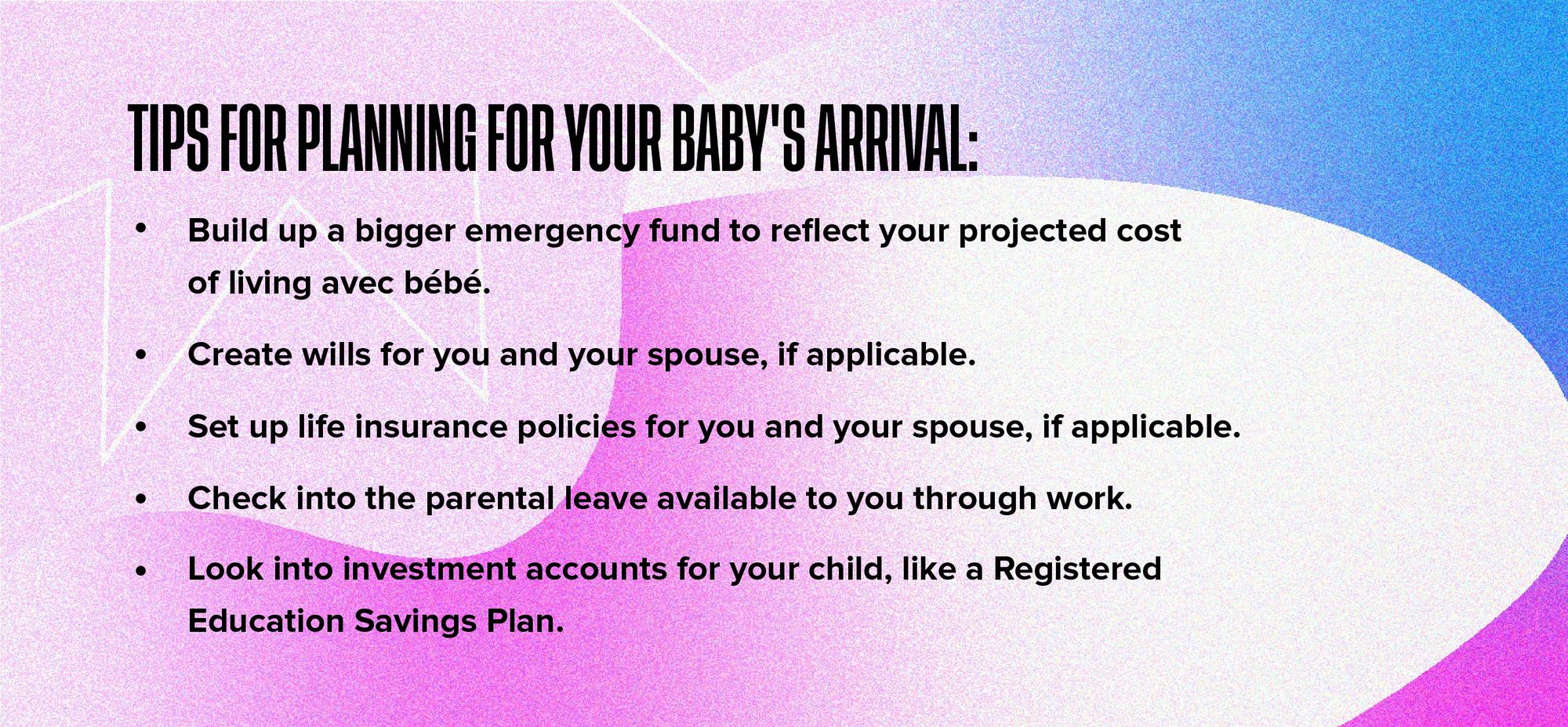
Planning ahead for the baby’s arrival and the first few years of parenthood will save you a lot of headaches. Get ready, because we’re gonna give you a list of stuff to consider. If it seems overwhelming, break each task down into small, manageable steps.
You may want to consider:
- Building up a bigger emergency fund to reflect your projected cost of living avec bébé
- Creating wills for you and your partner or spouse (if applicable)
- Setting up life insurance policies for you and your partner or spouse (if applicable)
- Checking into the parental leave available to you
- Setting up investment accounts for your child, like a Registered Education Savings Plan
If you can knock each of these items off your list before the baby arrives, you’ll be working from a very strong foundation. These can help you get a handle on your immediate financial future (like your income while on parental leave), your child’s future (school is expensive!), and the worst case scenarios.
Stick to the Essentials
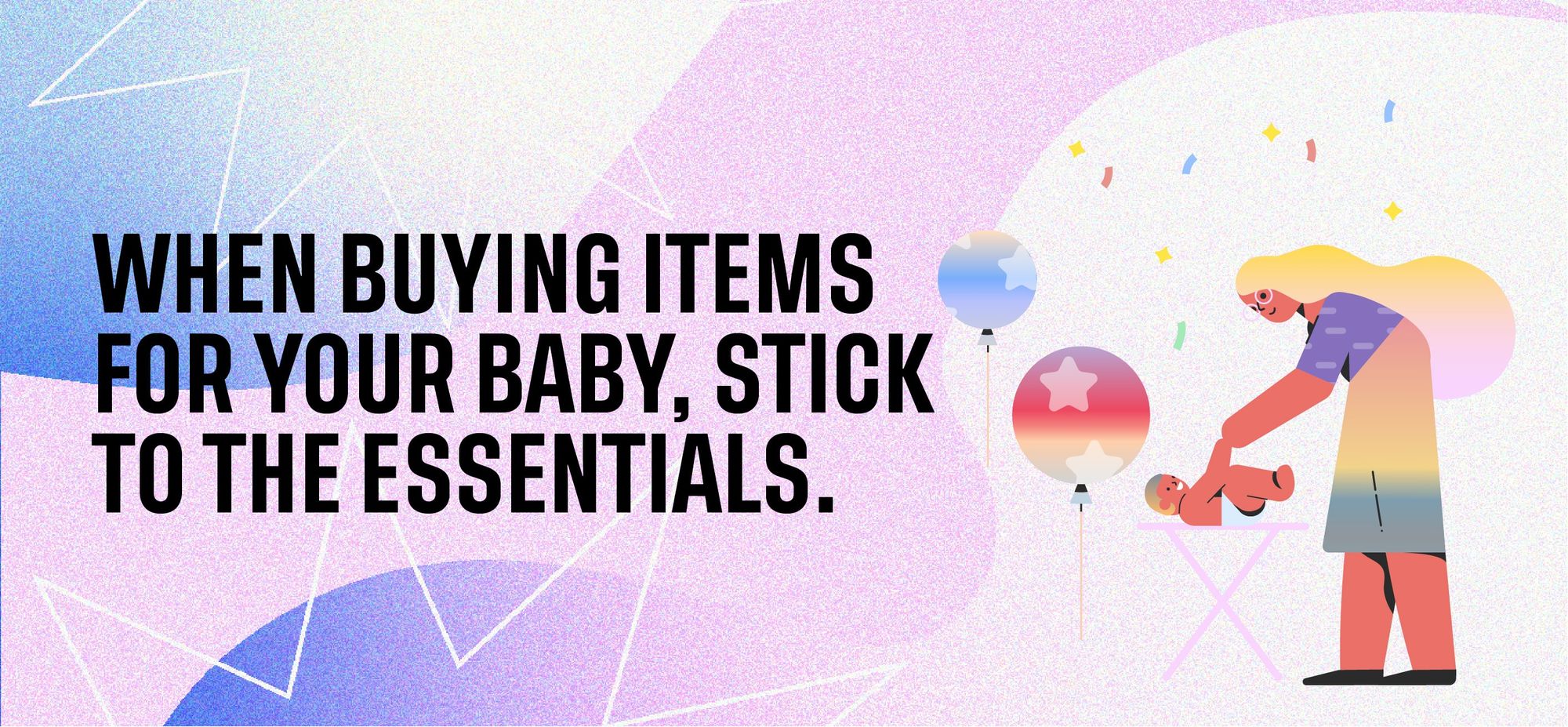
With the real grown-up stuff out of the way, you can turn your attention to the absolute maelstrom that is Having A Baby Under Capitalism. Y’all, which stroller are you buying? An Uppababy, right? Because that’s what that cool, inexplicably wealthy mom on Instagram has, right?
And then you’ll need the little mats and props to arrange around the baby for photos? And then toys, lots of toys… Also Wildbird slings? What about car seats? What about baby books? Diaper Genies and bottle sterilizers? Mobiles?? Do they have to be literal Alexander Calders, or will the baby kindly accept an off-brand?
Take a breath. When buying items for your baby, stick to the essentials.
It’s tempting to sink thousands into items that purport to make your life and the baby’s life better or easier. But you really don’t need most of them.
Before you go on a buying spree, consult other parents in your life. What did they buy, and what would they recommend?
The old adage goes you’ll buy your cat a toy and it’ll get more use out of the box the toy arrived in. Babies can kinda be the same. They don’t care about brand names and they’re liable to be entertained by the silicon spaghetti server in your kitchen.
If you find yourself wanting to buy a ton of baby goods, check yourself. Some things will be worth the expense. But most aren’t.
A good rule of thumb: if you find something you want to buy, wait for a week or two. If you still want it, consider buying it. Creating time for you to cool down before making purchases can help curb your spending appetite.
Ask For Help
Babies grow! And as they grow, their old clothes, toys, high chairs and other goodies stop being useful. And then all of those perfectly good items get donated or thrown out.
If you’re strapped for cash and need more baby items, ask around. Ask the other parents in your life, or check online marketplaces like Facebook.
That said, you should only accept donated or second hand items that you can sterilize.
Similarly, if there are big ticket items you need help purchasing, ask. Often, new grandparents or friends will be more than happy to chip in $20 or $50 to help you purchase an item that will make parenthood more fun and easy for you.
Quit Using Your Credit Card
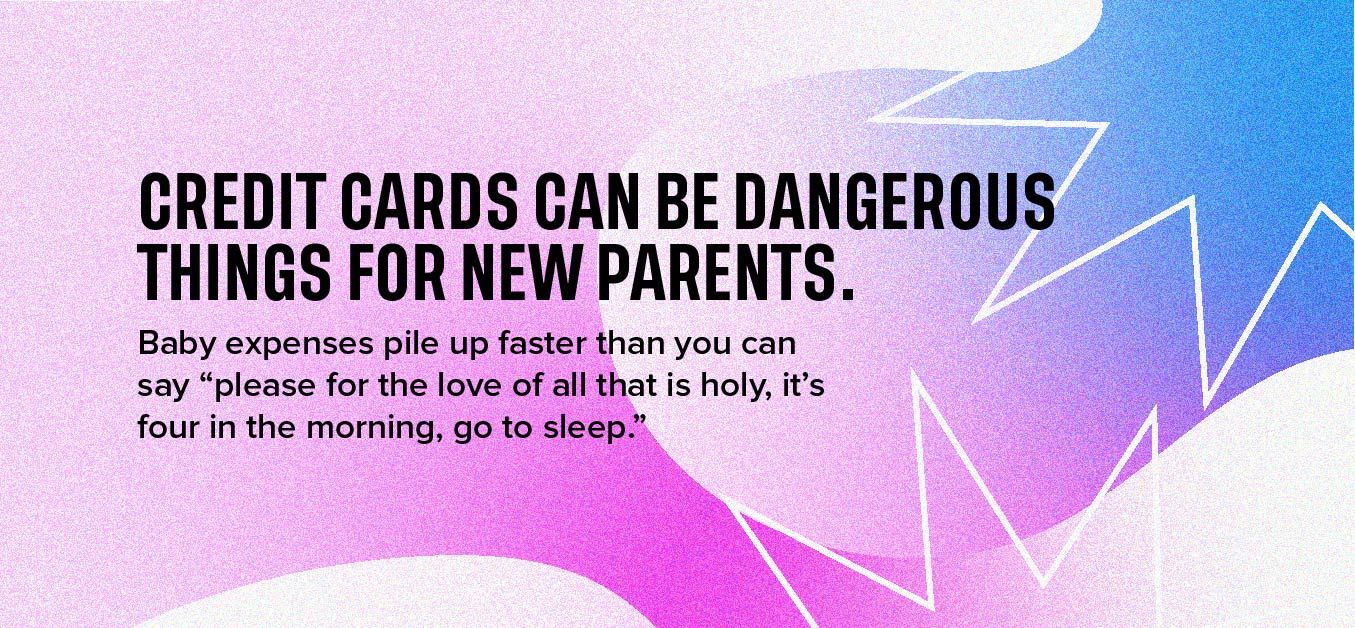
Credit cards can be dangerous things for new parents. Oh look, impossibly adorable tiny little Vans for my newborn child? Only $17? Well… it can’t hurt, right? It’s just one pair…
Incorrect! Baby expenses pile up faster than you can say “please for the love of all that is holy, it’s four in the morning, go to sleep”, and credit cards are designed to make you spend more money.
Unless you really need it, leave yours at home.
Instead, you might consider using the Mogo Visa* Platinum Prepaid Card. It’s prepaid, so you can’t go into debt while using it—but you can use it for all the stuff where you’d normally use a credit card. Every time you spend with the MogoCard, you’ll get a notification reminding you of your remaining balance, which can help you stick to your budget.
| GET MY FREE MOGOCARD |
As a bonus? Every time you tap your card, we plant a tree on your behalf (we call this initiative Code Red Mode, and it’s how we’re trying to make the planet healthier and more habitable for future generations).
And it’s totally free to use. It’s a no brainer—help centralize and control your spending while contributing to a healthier planet for your kid(s).
Having a baby can be a challenging experience (to say the least). But don’t freak out. Focus on what matters and keep it simple. You’ve got this.
*Trademark of Visa International Service Association and used under licence by Peoples Trust Company. Mogo Visa Platinum Prepaid Card is issued by Peoples Trust Company pursuant to licence by Visa Int. and is subject to Terms and Conditions, visit mogo.ca for full details. Your MogoCard balance is not insured by the Canada Deposit Insurance Corporation (CDIC). MogoCard means the Mogo Visa Platinum Prepaid Card.